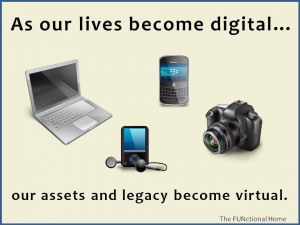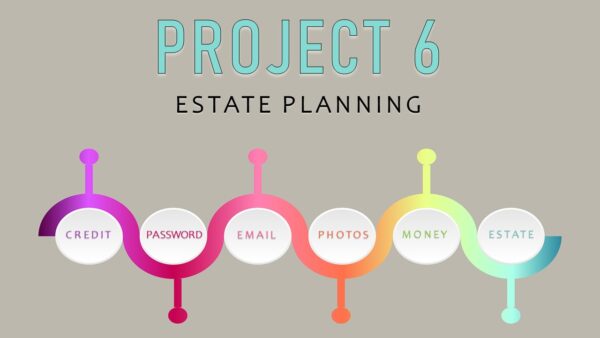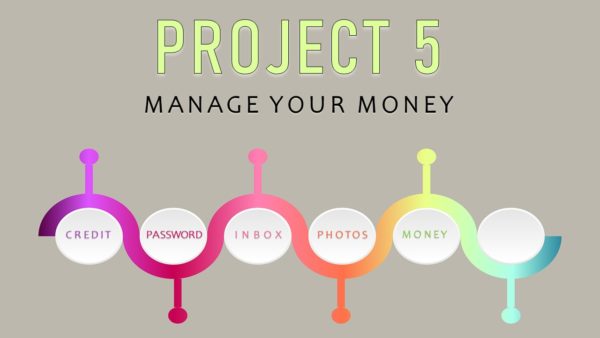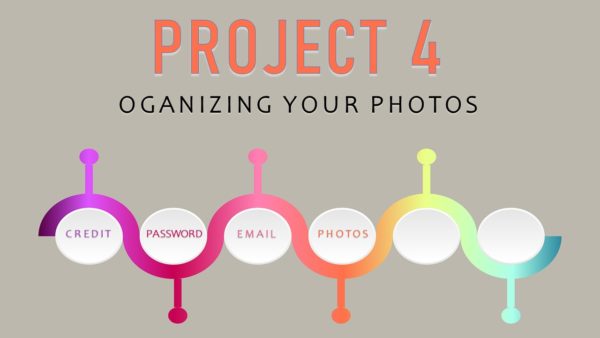Estate planning requires us to confront many challenging issues. For some, the thought of facing…
Virtual Estate Planning
 One day the manager at my bank approached me for help with a client, a 32 year old man who had lost his wife. He had arrived with a stack of papers, explaining that he did not know how much money he had or what he might owe. His wife had handled all the money; she had even paid most of the bills online. He didn’t have access to those accounts because he didn’t know their passwords. He wasn’t even sure he had a complete list of all their accounts because she received statements via her phone’s email. And- you guessed it- he didn’t have access to her phone’s password.
One day the manager at my bank approached me for help with a client, a 32 year old man who had lost his wife. He had arrived with a stack of papers, explaining that he did not know how much money he had or what he might owe. His wife had handled all the money; she had even paid most of the bills online. He didn’t have access to those accounts because he didn’t know their passwords. He wasn’t even sure he had a complete list of all their accounts because she received statements via her phone’s email. And- you guessed it- he didn’t have access to her phone’s password.
The paperless movement, while convenient, has unwittingly made settling an estate more stressful. But with a little advance planning, we can live in this digital age and still provide access to loved ones when they most need it. So let’s get started!
Create your master list.
You can create a road map of sorts for those who will be handling your affairs by drawing up a master list of your online accounts and virtual assets. Include all the information needed for access including websites, usernames, passwords and answers to secret questions. Then decide on the level of security you need to protect this list and how it will stay updated. Some clients who are comfortable with technology prefer their information be stored out of sight. They often choose to use an online service, such as Lastpass, to build a list of accounts and passwords. These services provide the benefit of automatically updating the information when you change any of your passwords. You may prefer a password-protected spreadsheet on your computer; or you may simply write the information in a notebook. These last two options require some discipline to keep your list updated. No matter what you choose, let someone know where this list is kept and how to access it.
Now decide the best way for you share it.
This master list of online accounts is the foundation of your virtual estate plan; but you can do even more. I suggest that you make your wishes known regarding your virtual life and digital assets. For example, if you don’t explain to your family or friends what should happen to your Facebook page, the decision lands on them. Should they memorialize it, take it down, or leave it live? Each option has its pros and cons, but a decision made now can save time and stress later. In fact, many attorneys now ask their clients to do this when preparing an estate plan. Here are some things to think about:
- Do you keep your photos online? Who will have access to these when you’re gone?
- What do you want to happen to your Facebook page or Twitter account?
- Do you store documents in the cloud (Dropbox, Evernote, Apple or Google)?
- Do you have a website or a blog? What do you want to happen to it when you are gone?
- Do you belong to an online community? How will they be told of your passing– should someone post your obituary?
- Should any of your emails be saved or shared? Have you left a way for someone to do this?
You will need to appoint someone, called a “digital executor,” to handle all this for you.
This should be someone who understands technology and is trustworthy. It need not be the same person as the executor of your will (and can even be divided between two people). You can include a letter of instruction with your will, or you can use a service that sends out a letter with your directives and passwords upon your death (The Digital Beyond has a complete and up-to-date resource list for digital estate services, posthumous email services and online memorials. Check them out here http://www.thedigitalbeyond.com/online-services-list). What do I recommend? Tell them now. Tell your spouse, partner, best friend or sibling, whomever will need the information. Tell them where to find it now.



